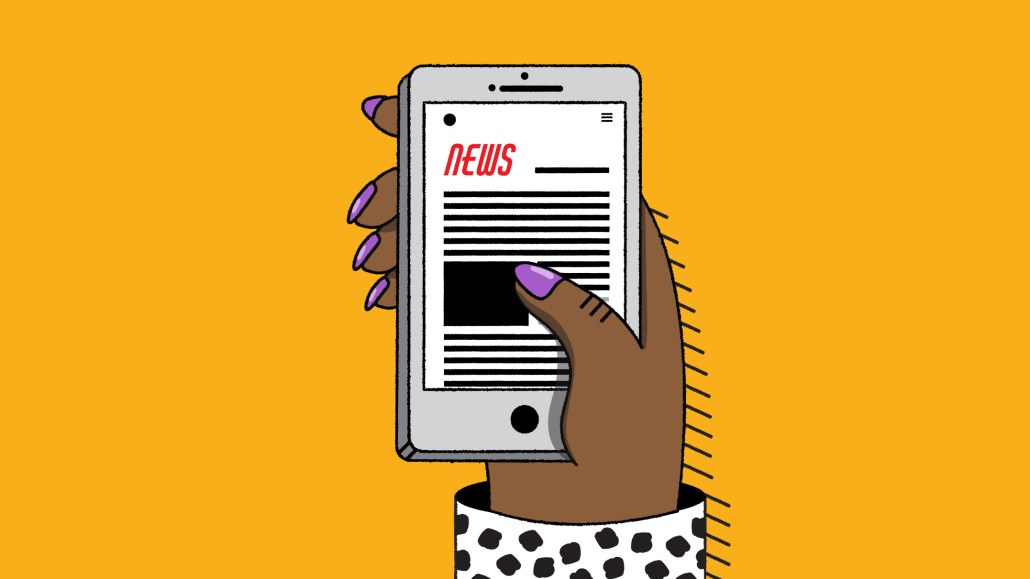Secure your place at the Digiday Media Buying Summit in Nashville, March 2-4
Why a pet insurance brand pivoted to earned media for brand awareness during the pandemic

Pumpkin Pet Insurance is betting big on earned media to increase website traffic and sales after seeing initial success with its brand launch last year.
The New York-based brand is working with Dini von Mueffling Communications, a public relations firm based in New York City, to — among those other goals — increase brand awareness and cement its stake in the ground in the pet insurance brand landscape. And even post-pandemic, as the brand explores in-person activities once again, the company will keep earned media as part of its core strategy, said chief marketing officer Elizabeth Dimond.
While Dimond declined to disclose ad spend or specifics, she noted that earned media is now a significant part of the brand’s media strategy after the pandemic shuttered in-person brand activations. To support earned media efforts, Pumpkin Pet Insurance has a separate budget for fixed marketing costs that includes agencies, per a spokesperson for the brand. A major part of the brand’s ad spend is otherwise made up of search and affiliate marketing.
Per the brand’s website, Pumpkin Pet Insurance has been featured in the New York Post and various veterinary news outlets.
“Now that we’re in [a culturally sensitive time] and coming out of the pandemic, when information had to be translated and disseminated very quickly, that’s where we saw earned media play more of a role,” said Erica Samadani, who leads the public relations practice at IPG sister agency MullenLowe.
Over the last year, the pet insurance brand has rolled out at least three major efforts to gain media traction and boost brand awareness. Last Halloween, Pumpkin launched a digital pet costume generator, prompting a spike in website traffic. In January, the pet insurance brand hosted a virtual Inauguration Day party for President Joe Biden’s German shepherd Major Biden. With that organic traffic to Pumpkin’s site significantly increased during the campaign and landed them an ad equivalent of $14.2 million, according to a spokesperson for the brand, who noted press coverage for the event reached an aggregate readership of 7.5 billion.
“It’s been really about how do we think more creatively to get the media to cover Pumpkin even if it’s a little bit outside of our core pet insurance offering,” Dimond said.
Originally, the brand planned to launch last year with in-person events and on-site activations with veterinarians. But once the pandemic lockdown set in, it pivoted to digital efforts.
“When we launched the brand, we thought it would be relatively easy to get [coverage] for our brand. But we found out that it’s actually more challenging than we had originally anticipated,” she said, noting that they found stiff competition with the hard news of 2020.
Overall, earned media became an increasingly important part of brand awareness strategy during the pandemic, according to Samadani. Approximately 75% of the agency’s clients have increased their spending on communication efforts over the past year, per Samadani. It points to tightened marketing budgets due to the pandemic and earned media acting as a quick and cost-efficient media channel, especially compared to increasing digital ad costs, she said.
“We think that the industry was going in this way in terms of needing to move at the speed of culture,” Samadani said. “The pandemic made [earned media] not just a nice to have but a necessity.”
As vaccine rollout continues and the pandemic lets up, Samadani suspects earned media will continue to be a trend.
More in Marketing

Future of Marketing Briefing: AI’s branding problem is why marketers keep it off the label
The reputational downside is clearer than the branding upside, which makes discretion the safer strategy.

While holdcos build ‘death stars of content,’ indie creative agencies take alternative routes
Indie agencies and the holding company sector were once bound together. The Super Bowl and WPP’s latest remodeling plans show they’re heading in different directions.

How Boll & Branch leverages AI for operational and creative tasks
Boll & Branch first and foremost uses AI to manage workflows across teams.








